Resources

"Degrees of Choice provides a sophisticated account of the overlapping effects of social class, ethnicity and gender in the process of choosing which university to attend. The shift from an elite to a mass system has been accompanied by much political rhetoric about widening access, achievement-for-all and meritocratic equalisation." This book gives a full and different picture, drawing on qualitative and quantitative data to show how the welcome expansion of higher education has also deepened social stratification, generating new and different inequalities. While gender inequalities have reduced, those of social class remain and are now reinforced by racial inequalities in access. Employing perspectives from the sociology of education and particularly Bourdieu's work on distinction and judgement, the book links school (institutional habitus) and family (class habitus) with individual choice making in a socially informed dynamic. (From the Publisher)
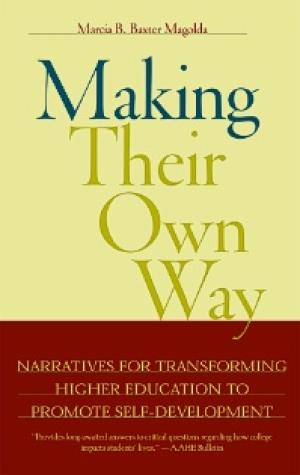
What impact does a college education have on students' careers and personal lives after they graduate? Do they consider themselves well prepared for the complexities, demands and ambiguities of contemporary society? What can we learn from their stories to improve the college learning experience? This ground-breaking book extends a unique longitudinal study of 101 male and female college students started by the author in 1986, and reported in her highly successful and influential book, Knowing and Reasoning in College (1992). This book follows the journeys of the young adults remaining in the study -- drawing on over 300 new interviews -- from graduation to their early thirties. Through the students' own stories, Marcia Baxter Magolda allows us to follow their journeys to an internally-authored sense of identity and belief systems, and in many cases to witness the development of the complex ways of making meaning that are needed for fulfilling participation in modern society. From her observation and analysis, she derives a new framework for higher education to achieve better stewarding and fostering of its students' crucial journeys of transformation. She develops the concept of providing "good company" -- through the shaping of curriculum and co-curriculum, advising, leadership opportunities, campus work settings, collaboration, diversity and community building -- that young adults need along the way to finding and to taking their place as citizens and leaders in the twenty-first century. This is an important book for all teachers and leaders in higher education who are concerned with the holistic development of students, and with higher education's responsibility to foster critical thinking, citizenship and leadership. It has particular relevance for student affairs educators and professionals; as well as for graduate, professional school and continuing education faculty who seek insight into young adult development. (From the Publisher)
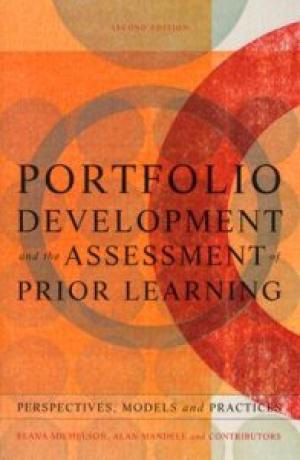
For over thirty years, portfolios have been used to help adult learners gain recognition for their prior learning and take greater control of their educational experiences. The portfolio has become a distinctive means of assessing such learning, serving as a meaningful alternative to conventional papers and standardized testing. Portfolio Development and the Assessment of Prior Learning: Perspectives, Models, and Practices provides a primer of flexible approaches to shaping and conducting portfolio-development courses. It offers practitioners in the field an extensive range of model assignments, readings, and classroom activities, each organized around a specific theme: Academic Orientation, The Meaning of Education, Personal Exploration, Learning from the Outsider Within, The World of Work and Careers, and Dimensions of Expertise. Twelve case studies by practitioners in the field then show how academics in the US and around the English-speaking world have adapted the portfolio to changing circumstances in order to deliver academically rich educational services for adults. These case studies highlight portfolio development in the context of web-based instruction, changing institutional imperatives, service to historically disenfranchised groups, partnerships with industry, and cross-institutional cooperation. In addition to serving as a valuable hands-on resource for practitioners, Portfolio Development and the Assessment of Prior Learning locates portfolios and assessment in a broad social and intellectual context. Thus, the authors also offer an historical overview of the usefulness of portfolios in the assessment of prior learning and then consider their use inthe future, given current trends in higher education for adults. The book explores the implications of a changing educational landscape, in which new student populations, budgetary pressures, and understandings of knowledge both enrich and challenge student-centered approaches such as portfolios. The approaches and case studies are not only valuable to adult educators but, equally, to faculty in higher education concerned with the development of competency- and outcomes-based assessment. (From the Publisher)
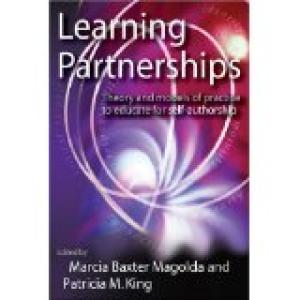
While a common goal of higher education is to improve student learning to prepare young adults for the professional, civic and personal challenges of their lives, few institutions have a model to facilitate these outcomes. Learning Partnerships offers a grounded theory and practical examples of how these objectives can be achieved at the college course, program, and institutional levels. The book takes as its foundation Marcia Baxter Magolda's Learning Partnerships Model, based on her seventeen-year longitudinal study of young adults' learning and development from their undergraduate years through their thirties. Based on nearly a thousand participant narratives, the model offers an empirically grounded yet flexible approach to promote "self-authorship." Marcia Baxter Magolda describes the nature of self-authorship -- its centrality to the learning goals of cognitive maturity, an integrated identity, mature relationships, and effective citizenship -- and the Model. The book then documents examples of actual practice and the learning outcomes they have yielded. The settings include community college and undergraduate courses, exchange and internship programs, residential life, a Masters' program, faculty development and student affairs organization. Learning Partnerships offers models for all educators -- faculty and student affairs staff alike -- who work to balance guidance and learner responsibility to prepare students for the complexity of the twenty-first century. (From the Publisher)
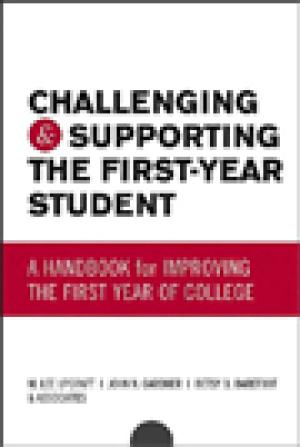
An authoritative, comprehensive guide to the first year of college, Challenging and Supporting the First-Year Student includes the most current information about the policies, strategies, programs, and services designed to help first-year students make a successful transition to college and fulfill their educational and personal goals. (From the Publisher)
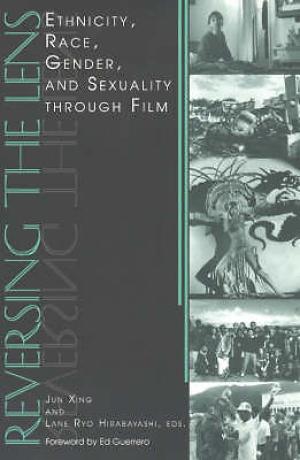
Reversing the Lens brings together noted scholars in history, anthropology, sociology, ethnic studies, and film studies to promote film as a powerful educational tool that can be used to foster cross-cultural communication with respect to race and ethnicity. Through such films as Skin Deep, Slaying the Dragon, and Mississippi Masala, contributors demonstrate why and how visual media help delineate various forms of "critical visual thinking" and examine how racialization is either sedimented or contested in the popular imagination. Reversing the Lens is relevant to anyone who is curious about how video and film can be utilized to expose ethnicity, race, gender, and sexuality as social constructions subject to political contestation and in dialogue with other potential forms of difference. (From the Publisher)

Racism is alive and well although it has changed its clothes. Color-blind racism combines elements of liberalism in the abstract with anti-minority views to justify contemporary racial inequality. (From the Publisher)

In the burgeoning field of whiteness studies, What White Looks Like takes a unique approach to the subject by collecting the ideas of African-American philosophers. George Yancy has brought together a group of thinkers who address the problematic issues of whiteness as a category requiring serious analysis. What does white look like when viewed through philosophical training and African-American experience? In this volume, Robert Birt asks if whites can "live whiteness authentically." Janine Jones examines what it means to be a "goodwill white." Joy James tells of beating her "addiction" to white supremacy, while Arnold Farr writes on making whiteness visible in Western philosophy. What White Looks Like brings a badly needed critique and philosophically sophisticated perspective to central issue of contemporary society. (From the Publisher)
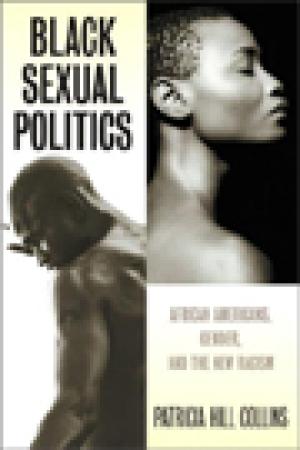
In Black Sexual Politics, one of America's most influential writers on race and gender explores how images of Black sexuality have been used to maintain the color line and how they threaten to spread a new brand of racism around the world today. In the tradition of her award-winning book, Black Feminist Thought, Patricia Hill Collins now turns her critical eye to race, gender, and sexuality in relation to black men and women. (From the Publisher)

Blea provides a synthesis of the women's history of Native Americans, Asians, African Americans, and Latinas, and she examines the similarities and differences among these women. From each she extracts suggestions on ways to promote racial and ethnic tolerance. (From the Publisher)